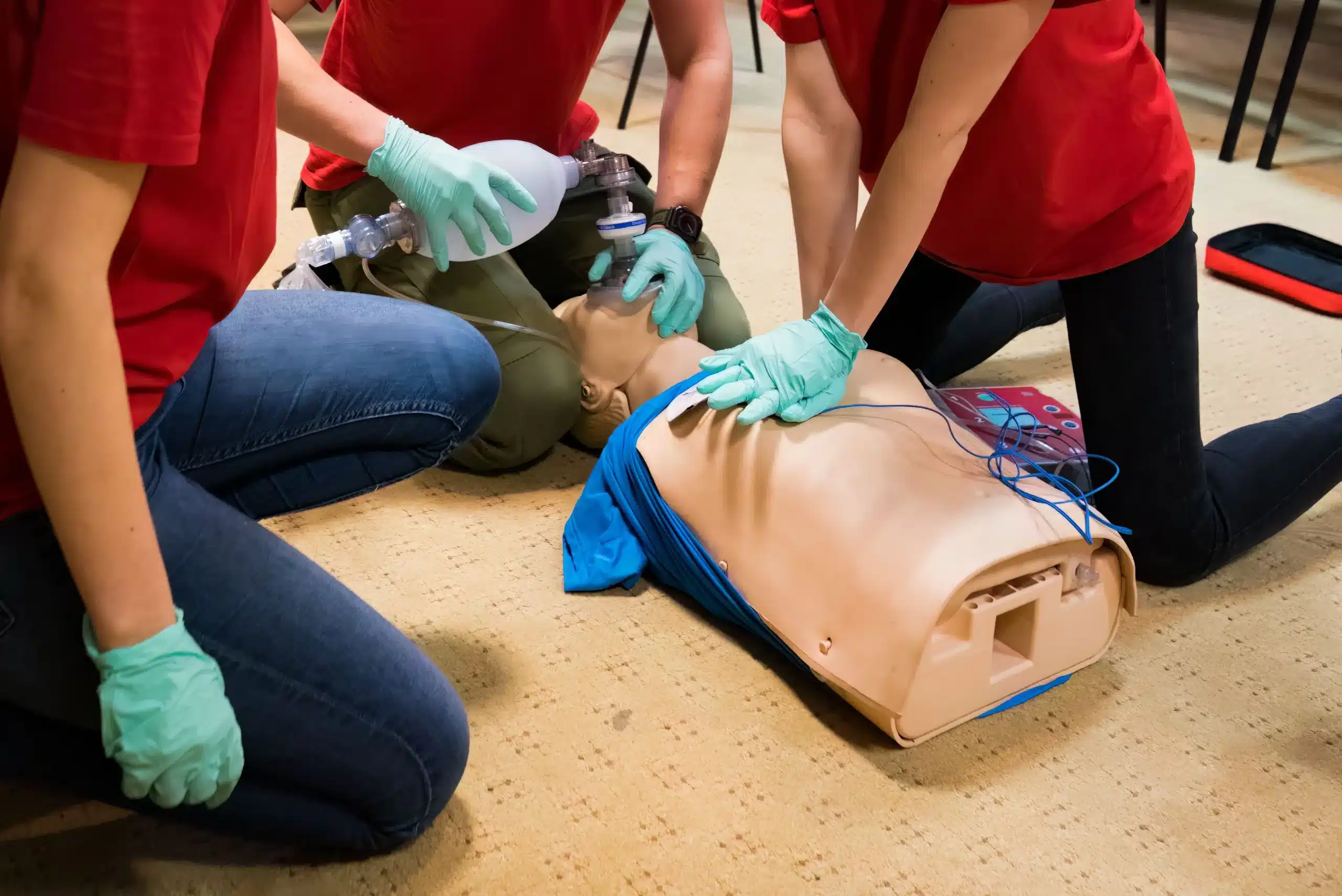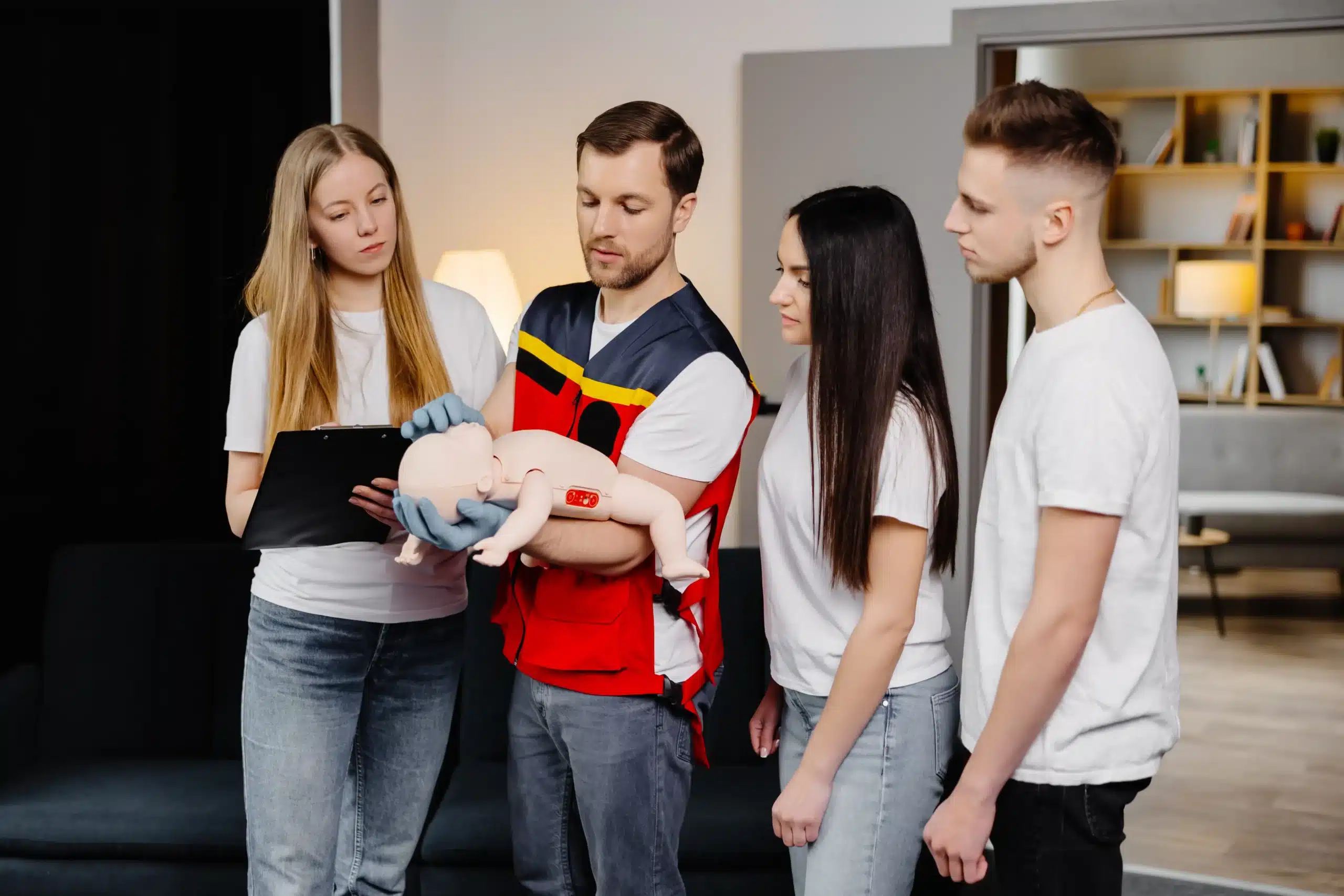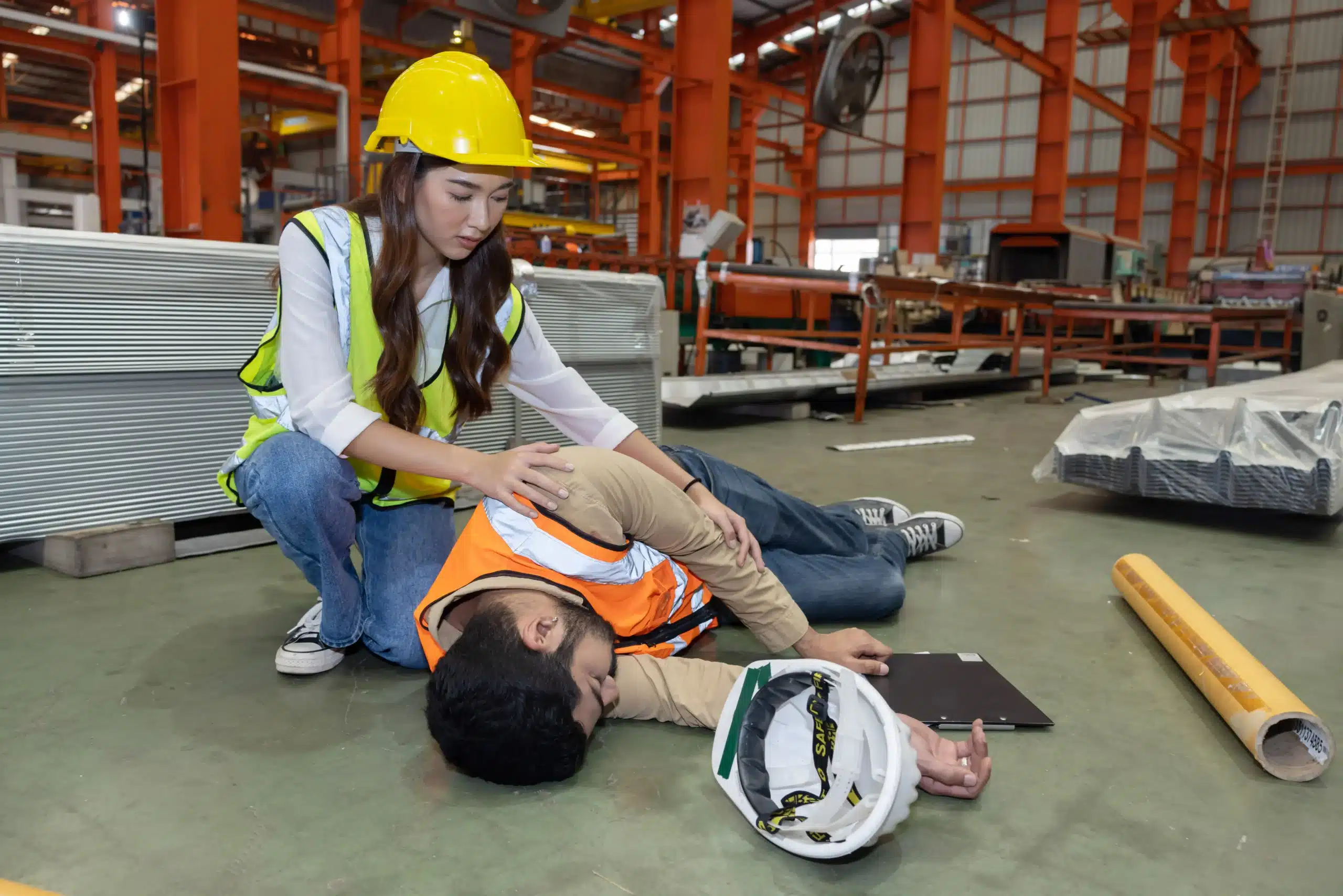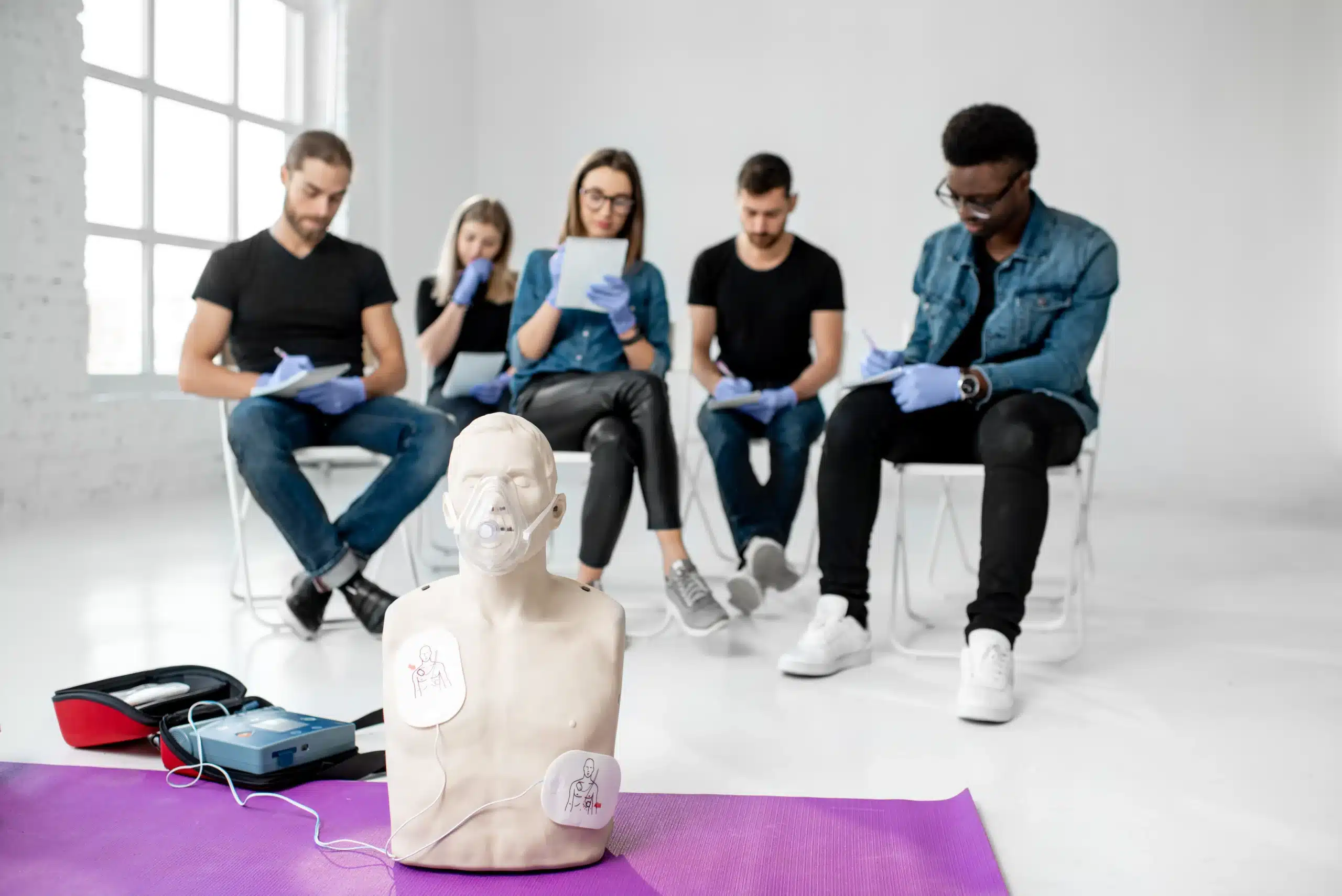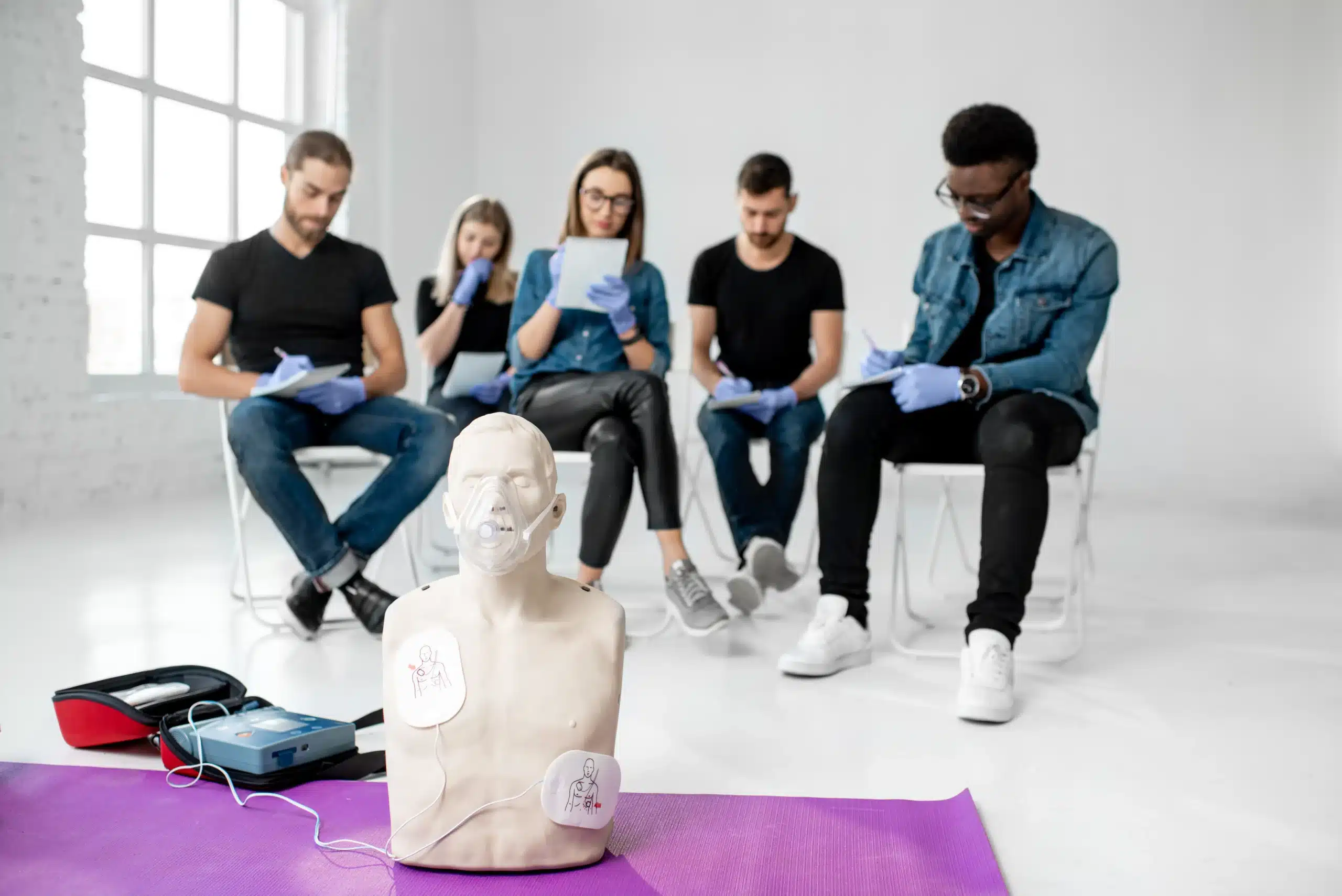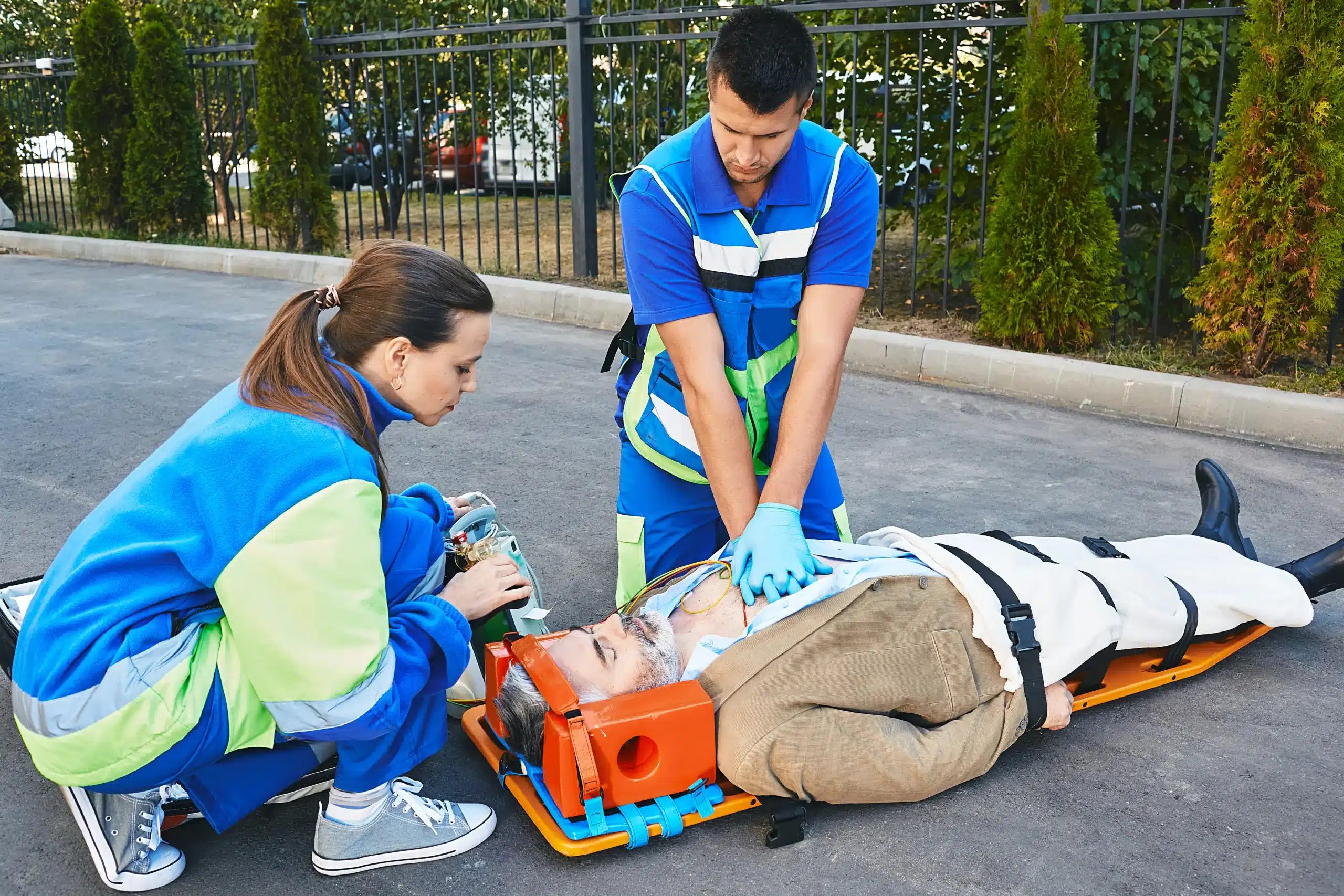Emergencies can happen anytime, anywhere. Would you know what to do if someone near you experienced a sudden cardiac arrest? CPR training in Woodland empowers you to respond effectively in these critical situations. It equips you with the skills and confidence to provide immediate assistance, potentially bridging the gap until professional help arrives. This guide explores the various CPR training options available in Woodland, including BLS, ACLS, PALS, and First Aid/CPR combination courses. We’ll also discuss how to choose a reputable training provider, understand associated costs, and maintain your certification. Get ready to become a more confident and prepared individual with the power to make a real difference.
Key Takeaways
- Find the right CPR class for you: Woodland offers various CPR training options, from basic life support to advanced certifications like ACLS and PALS. Choose a course that aligns with your individual needs and career goals.
- Select a reputable training provider: Look for certifications, qualified instructors, and a learning environment that suits your style. Consider factors like class size, hands-on practice opportunities, and convenient locations.
- Stay current with your CPR skills: CPR certifications typically expire every two years. Regularly refresh your knowledge and skills to maintain your proficiency and confidence in responding to emergencies.
What is CPR Training in Woodland?
CPR training in Woodland gives you the skills to respond to medical emergencies where someone’s breathing or heartbeat has stopped. It’s about learning the techniques that can quite literally save a life—chest compressions, rescue breaths (mouth-to-mouth resuscitation), and how to use an AED (automated external defibrillator). These skills empower you to provide immediate assistance until professional medical help arrives. CPR classes are often required for healthcare professionals and other jobs, but anyone can benefit from learning these life-saving skills.
Several organizations offer CPR certification courses in Woodland. You’ll find options through established providers like the American Red Cross and the American Heart Association (AHA), as well as local companies like Davis CPR Classes and Kiser CPR. Many courses meet OSHA requirements and offer nationally recognized certifications. Whether you’re a healthcare professional, a concerned parent, or simply someone who wants to be prepared, CPR training is a valuable investment. It provides the confidence and competence to act quickly and effectively in a crisis.
CPR Training Classes Available
Knowing which CPR class is right for you depends on your current skills and career goals. Here’s a rundown of common CPR training options available in Woodland:
Basic Life Support (BLS)
BLS is the foundation for all other life support training. It’s essential for healthcare providers, first responders, and anyone in a field where they might need to respond to a cardiac arrest. The American Heart Association (AHA) BLS Provider course covers core skills like CPR, using an AED, and relieving choking. Davis CPR Classes offers convenient BLS courses in Davis with a blended learning option that combines online coursework with an in-person skills session, making it easy to fit into your schedule.
Advanced Cardiovascular Life Support (ACLS)
ACLS training builds upon the skills learned in BLS. This advanced course is designed for healthcare professionals who are part of resuscitation teams responding to cardiopulmonary emergencies. It covers topics like airway management, pharmacology, and effective team dynamics during a crisis. Woodland CPR Classes offers ACLS training along with other AHA-certified courses.
Pediatric Advanced Life Support (PALS)
PALS focuses on the specific needs of infants and children facing life-threatening illnesses or injuries. Like ACLS, it’s geared towards healthcare providers, equipping them with the knowledge and skills to provide high-quality care in pediatric emergencies. PALS training covers everything from recognizing respiratory distress to managing cardiac events in young patients. You can find PALS courses alongside other essential training programs at Woodland CPR Classes.
First Aid and CPR Combination Courses
Combining First Aid and CPR training is a smart move for anyone wanting a well-rounded skillset. These courses teach you how to respond to a range of emergencies, from cardiac arrest to common injuries like burns and cuts. You’ll learn essential life-saving techniques and gain the confidence to act quickly and effectively in various situations. Woodland CPR Classes offers First Aid and CPR combination courses making it easy to become certified in both areas.
Choose the Right CPR Training Provider
Finding the right CPR training provider is crucial for a valuable learning experience. Here’s what to consider:
Certification and Accreditation
First, verify the provider’s certifications and accreditations. You want training that meets nationally recognized standards. For example, look for providers offering American Heart Association (AHA) certified courses like those offered by Davis CPR Classes. This ensures your certification will be widely accepted.
Instructor Qualifications
Qualified instructors make a difference. Check the instructor’s background and experience. Extensive experience in the field and active involvement in healthcare are good signs. Knowledgeable and passionate instructors create a more engaging and effective learning environment.
Class Size and Training Methods
Think about your learning style. Do you prefer a smaller, more intimate setting or a larger class? Hands-on practice is essential, so find out about the class size and training methods. Will you have ample opportunity to practice on manikins? Interactive classes with plenty of practice time are key to mastering CPR skills.
Location and Accessibility
Convenience matters. Choose a training location that’s easy to get to and fits your schedule. Consider providers like Davis CPR Classes, which offer classes in multiple locations, making it easier to find one near you. Also, check if they offer weekend or evening classes.
CPR Course Costs & Schedules
Finding a CPR class that fits your budget and schedule is easier than you think. CPR training costs vary depending on the provider and the type of class. Generally, you can expect to find CPR training between $14 and $100. Standard CPR classes usually average around $20–$55, making them accessible to most individuals. More structured classes, like a basic two-hour CPR training session, typically cost somewhere between $35 and $45 per person, often with group discounts available. For a class of eight trainees, the minimum fee is usually between $280 and $320. Davis CPR Classes offers a low price guarantee to ensure you’re getting the best value.
Available Discounts and Package Deals
Many CPR training providers offer discounts, especially for group registrations. This can be a smart way to make training more affordable for businesses, community groups, or families. Always ask about group discounts and any available promo codes when you contact a provider.
Flexible Class Schedules and Duration Options
CPR classes are designed to accommodate busy schedules. Many providers offer classes daily, sometimes even from 8 a.m. to 10 p.m., seven days a week. This flexibility allows you to find a time that works for you, whether it’s a weekday evening or a weekend afternoon. Course lengths also vary. A standard CPR course takes about two hours, followed by a 40-minute skills test. Some providers offer convenient BLS courses with flexible scheduling options, including in-home training for those who prefer a more personalized learning environment.
Top CPR Training Providers in Woodland
Finding the right CPR training provider is crucial for a positive and effective learning experience. Here are some of the top options in Woodland:
Davis CPR Classes
Davis CPR Classes offers a range of American Heart Association (AHA) compliant courses, from basic CPR to advanced certifications like ACLS and PALS. They also offer the RQI program, a great option for busy medical professionals looking to renew their certifications. Davis CPR Classes serves Davis, Woodland, and Sacramento, and offers a low-price guarantee. You can browse their BLS course schedule to find a class that fits your needs.
Safety Training Seminars
Safety Training Seminars provides a variety of safety courses, including CPR training in Woodland. With a customer service team available daily, including weekends, they offer flexible scheduling options. You can find their CPR class schedule and register here. They also offer additional health and safety training, including courses on lead poisoning prevention.
Kiser CPR, LLC
Kiser CPR, LLC focuses on providing AHA-authorized CPR, First Aid, and Basic Life Support certification courses. They emphasize high-quality instruction and strive to create a comfortable learning environment. Visit their website for more information on their Woodland CPR classes.
American Red Cross
The American Red Cross Gold Country Region offers a variety of safety training courses, including CPR and First Aid. They have multiple class locations, making it convenient to find a course near you. You can explore their course offerings and locations on their website.
Local Hospitals and Medical Centers
Many local hospitals and medical centers in the Woodland area offer CPR training classes. These classes are often part of their community outreach programs and cater to both healthcare professionals and the general public. Check with hospitals and medical centers in your area for their course schedules and availability.
What to Expect During CPR Training
CPR training blends theory and hands-on practice, giving you the skills and confidence to act in an emergency. Here’s a preview:
Class Structure and Content
CPR classes usually start by explaining cardiovascular emergencies and why quick action is crucial. You’ll learn the AHA Chain of Survival, steps that boost survival odds during cardiac arrest. Expect lectures, videos, and demonstrations illustrating key concepts. Safety Training Seminars offers these courses in several locations, including Woodland, CA. They cover essential topics like spotting signs of a heart attack, stroke, and choking, plus CPR for adults, children, and infants.
Hands-On Practice and Skills Testing
Hands-on practice is central to CPR training. You’ll spend much of the class using manikins to practice chest compressions, rescue breaths, and AED use. This builds muscle memory and comfort performing CPR in realistic scenarios. Skills testing usually takes 40–60 minutes at a designated training center location.
Materials and Equipment Provided
You don’t need to bring anything. CPR training providers supply manikins, AED trainers, and all materials. This hands-on approach maximizes your learning.
Certification Process
After completing the course and skills test, you’ll receive an official American Heart Association certification card. This nationally recognized certification, valid for two years, confirms your CPR proficiency.
Maintain Your CPR Certification and Skills
Earning your CPR certification is a fantastic achievement, but staying current with your skills is essential. Knowing how to maintain your certification and keep your skills sharp will ensure you’re always ready to respond effectively in an emergency.
Renewal Requirements and Timeframes
CPR certifications, such as those offered by the American Heart Association, are generally valid for two years. Keep track of your expiration date—add it to your calendar or set a reminder. This way, you can renew your certification before it lapses. The RQI program provides a streamlined path for renewing BLS, ACLS, and PALS certifications.
Continuing Education Options
Even if your certification isn’t expiring soon, consider refresher courses or look into more advanced training. Davis CPR Classes offers various courses to help you build on your existing skills. You can also explore other CPR courses in Woodland to refresh specific techniques or learn updated protocols.
Practical Tips for Keeping Your Skills Sharp
Consistent practice is key to maintaining proficiency in CPR. Look for practice sessions or workshops in your area. Many training centers incorporate hands-on, interactive training with manikins, offering realistic simulations. Reviewing CPR guidelines and procedures online or with training manuals is also helpful. Staying up-to-date on the latest recommendations will boost your confidence and effectiveness during a real emergency. Even discussing potential emergency scenarios with family or friends can reinforce your knowledge and improve your reaction time.
Related Articles
- Advanced Cardiac Life Support in Woodland, CA – Davis CPR Classes
- BLS Classes in Woodland: Your Complete Guide – Davis CPR Classes
- CPR Courses in Woodland: Your Complete Guide – Davis CPR Classes
Frequently Asked Questions
What’s the difference between BLS and CPR?
CPR (Cardiopulmonary Resuscitation) is the core technique within BLS (Basic Life Support). Think of BLS as the broader term encompassing CPR, along with other essential skills like using an AED and relieving choking. BLS certification is often a prerequisite for other advanced life support training.
How do I choose the right CPR class in Woodland?
Consider your specific needs and goals. If you’re a healthcare provider, BLS is essential, while ACLS and PALS are geared towards more advanced medical professionals. If you’re looking for general knowledge and preparedness, a standard CPR and First Aid combination course is a great option. Also, check the provider’s credentials, instructor experience, class size, and location convenience.
How much does CPR training cost, and are payment plans available?
CPR training costs vary but typically range from $20 to $100 depending on the course type and provider. Some providers offer group discounts or package deals. It’s always a good idea to inquire about payment plans or financing options when you contact a training center.
What if I have a busy schedule? Are there flexible class options?
Yes, many CPR training providers understand busy schedules and offer classes on evenings, weekends, and even weekdays. Some also provide blended learning options that combine online coursework with shorter in-person skills sessions. Check with specific providers for their schedule availability.
How can I keep my CPR skills current after getting certified?
Your CPR certification is typically valid for two years. Mark your calendar for renewal and consider refresher courses or more advanced training to stay sharp. Regularly reviewing CPR guidelines and practicing techniques, even informally, will help you maintain your skills and confidence.


